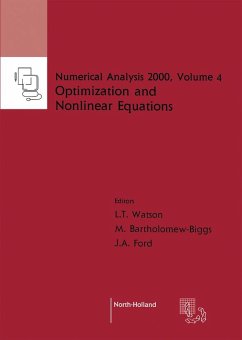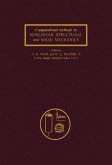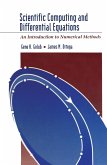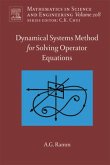Since the 1960s, much effort has gone into the development and application of numerical algorithms for solving problems in the two areas of optimization and systems of equations. As a result, many different ideas have been proposed for dealing efficiently with (for example) severe nonlinearities and/or very large numbers of variables. Libraries of powerful software now embody the most successful of these ideas, and one objective of this volume is to assist potential users in choosing appropriate software for the problems they need to solve. More generally, however, these collected review articles are intended to provide both researchers and practitioners with snapshots of the 'state-of-the-art' with regard to algorithms for particular classes of problem. These snapshots are meant to have the virtues of immediacy through the inclusion of very recent ideas, but they also have sufficient depth of field to show how ideas have developed and how today's research questions have grown out of previous solution attempts.
The most efficient methods for local optimization, both unconstrained and constrained, are still derived from the classical Newton approach.
As well as dealing in depth with the various classical, or neo-classical, approaches, the selection of papers on optimization in this volume ensures that newer ideas are also well represented.
Solving nonlinear algebraic systems of equations is closely related to optimization. The two are not completely equivalent, however, and usually something is lost in the translation.
Algorithms for nonlinear equations can be roughly classified as locally convergent or globally convergent. The characterization is not perfect.
Locally convergent algorithms include Newton's method, modern quasi-Newton variants of Newton's method, and trust region methods. All of these approaches are well represented in this volume.
Dieser Download kann aus rechtlichen Gründen nur mit Rechnungsadresse in A, B, BG, CY, CZ, D, DK, EW, E, FIN, F, GR, HR, H, IRL, I, LT, L, LR, M, NL, PL, P, R, S, SLO, SK ausgeliefert werden.









